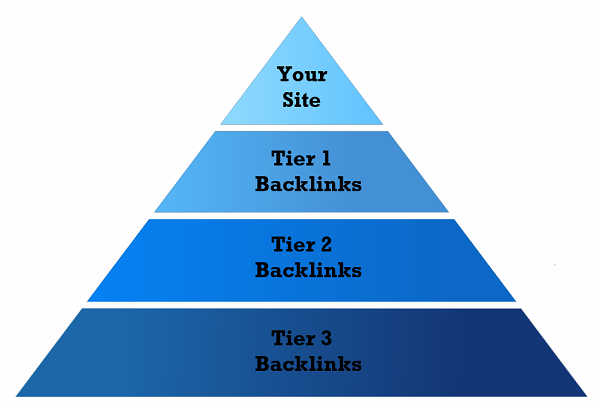In this digital age, cybersecurity is paramount to protect our digital presence from cybercriminals. Implementing effective cybersecurity measures is crucial. This article provides essential cybersecurity tips to safeguard your digital life and ensure data protection and internet security.
In today’s interconnected world, our digital lives are intertwined with various online platforms, making us vulnerable to cyber threats. From personal information to financial data, every aspect of our digital life is at risk. It is essential to take proactive steps to protect ourselves and our valuable information from malicious actors.
Use Strong and Unique Passwords

Creating strong and unique passwords is an essential cybersecurity practice that helps protect your online accounts. Weak passwords make it easier for cybercriminals to gain unauthorized access to your personal information, leading to potential identity theft or data breaches. Follow these tips to ensure your passwords are secure:
- Avoid common passwords: Using common passwords like “password” or “123456” significantly weakens your account’s security. Cybercriminals have access to commonly used passwords and can easily guess them.
- Create a complex password: Combine a mix of uppercase and lowercase letters, numbers, and special characters to make your password harder to crack. For example, instead of using “password,” try using “P@ssw0rd!”
- Make it long: The longer your password, the harder it is for cybercriminals to crack. Aim for a minimum of 10 characters, but longer is even better.
- Use a unique password for each account: Reusing passwords across multiple accounts is risky. If one account gets compromised, all your other accounts using the same password are at risk. Use a unique password for each account to add an extra layer of protection.
To manage and remember multiple strong and unique passwords, consider using a reliable password manager. A password manager securely stores all your passwords and generates strong, randomized passwords for each account. It eliminates the need to memorize complex passwords or write them down, reducing the risk of password leakage. With a password manager, you only need to remember one master password to unlock all your saved passwords securely.
Enable Two-Factor Authentication

When it comes to safeguarding your online accounts, two-factor authentication (2FA) is an essential tool that provides added security and peace of mind. By enabling this verification method, you can protect your accounts even if your password is compromised.
Two-factor authentication requires an additional verification step, typically in the form of a unique code sent to your mobile device. This ensures that only authorized individuals can access your accounts, adding an extra layer of protection against unauthorized access.
With two-factor authentication, even if someone manages to obtain your password, they won’t be able to log in without the additional verification code. This verification method makes it significantly more difficult for cybercriminals to gain unauthorized access to your sensitive information.
Setting up two-factor authentication is relatively easy and can be done for various online platforms, including email accounts, social media accounts, and banking services. Most major online platforms offer support for this security feature, allowing you to enhance your account’s protection effortlessly.
By using two-factor authentication, you effectively reduce the risk of unauthorized access and potential data breaches. It’s a simple yet powerful security measure that everyone should utilize to ensure the safety of their online accounts and personal information.
Implementing two-factor authentication provides an additional layer of security, ensuring that only authorized individuals can access your online accounts. By adding a simple verification step, such as a unique code sent to your mobile device, you can protect your accounts from unauthorized access, even if your password is compromised.
Keep Your Software Updated

Regularly updating your software, including operating systems and applications, is essential for maintaining strong cybersecurity. Software updates serve multiple purposes, from introducing new features to fixing bugs and improving performance. However, one of the most crucial reasons to keep your software updated is to address security vulnerabilities that can be exploited by cybercriminals.
Software vulnerabilities are weaknesses or flaws in the code that can be exploited to gain unauthorized access to your device or data. These vulnerabilities can vary in severity, from minor bugs to critical security loopholes. Cybercriminals actively search for these weaknesses to exploit and gain access to sensitive information or launch malicious attacks.
When developers become aware of these vulnerabilities, they release software updates that include patches or fixes to address them. These updates help to close the security loopholes and enhance the overall security of the software.
To ensure your software remains protected against potential threats, it’s important to check for updates frequently and enable automatic updates whenever possible. Automatic updates ensure that you receive the latest security patches as soon as they become available, without the need for manual intervention.
Additionally, keeping your software updated goes beyond just your operating system. It’s equally important to update applications such as web browsers, antivirus software, productivity tools, and any other software installed on your devices. By regularly updating all your software, you minimize the risk of falling victim to cyberattacks and maximize the protection of your digital life.
“Regularly updating software is a simple yet effective way to safeguard your digital life from potential security threats. By staying up-to-date with the latest software updates, you significantly reduce the risk of falling victim to cybercriminals.”
Software Update Best Practices:
- Enable automatic updates whenever possible to ensure timely installation of security patches.
- Regularly check for software updates manually, especially if automatic updates are not available.
- Keep all your applications, including web browsers and antivirus software, updated to minimize potential vulnerabilities.
- Download software updates only from official sources to avoid being tricked into installing malware.
By following these best practices and prioritizing software updates, you strengthen your digital defenses against security threats, reduce the risk of data breaches, and enjoy a more secure online experience.
Be Cautious of Phishing Attacks

Phishing attacks are prevalent forms of cybercrime that can compromise your personal information and security. Cybercriminals employ deceptive tactics to trick individuals into revealing sensitive information or downloading malicious software. It is essential to be highly vigilant and cautious when dealing with emails or clicking on links from unknown sources.
Verify the authenticity of the sender before providing any personal information or engaging in any further actions. Phishing emails often imitate reputable organizations, using logos, email addresses, and content that closely resemble legitimate communications. However, there are some telltale signs of phishing attempts:
- Urgent or threatening language: Phishing emails often create a sense of urgency, pressuring recipients into immediate action.
- Incorrect grammar or spelling mistakes: Scammers may overlook grammar and spelling, resulting in noticeable errors in their content.
- Unusual or suspicious links: Hover over links to verify whether they lead to legitimate websites. Be cautious of shortened URLs or those that don’t match the intended destination.
- Requests for personal information: Legitimate organizations rarely request personal information or login credentials via email. Avoid providing such details unless you can confirm the sender’s authenticity.
Remember, maintaining a healthy dose of skepticism when dealing with online communication goes a long way in protecting yourself from phishing attacks. When in doubt, contact the organization independently using verified contact information to confirm the legitimacy of any requests or messages.
By staying alert and cautious, you can enhance your personal security and prevent falling victim to deceptive phishing tactics.
Protect Yourself from Phishing Attacks
“Phishing attacks rely on human vulnerability. It’s essential to exercise caution and cultivate a skeptical mindset when engaging with suspicious emails or links.”
Secure Your Home Wi-Fi Network

In today’s interconnected world, securing your home Wi-Fi network is of utmost importance to protect your personal information from unauthorized access. By taking a few simple steps, you can significantly enhance the security of your network and safeguard your online privacy.
Firstly, it’s essential to change the default login credentials of your Wi-Fi router. Many routers come with generic usernames and passwords, making them vulnerable to hackers. By changing these credentials to something unique and complex, you can add an extra layer of protection to your network.
Next, ensure that you use a strong Wi-Fi password. Avoid using common phrases or personal information that could be easily guessed. Instead, create a password that combines uppercase and lowercase letters, numbers, and special characters.
Additionally, enabling encryption on your Wi-Fi network is vital to prevent unauthorized access. The most secure encryption protocol available is WPA2 (Wi-Fi Protected Access 2). It uses advanced cryptographic algorithms to protect your data and ensure that only authorized devices can connect to your network.
Remember, an unsecured Wi-Fi network makes it easier for cybercriminals to intercept your internet traffic, potentially gaining access to sensitive information such as passwords, financial data, and personal files.
By following these security measures, you can significantly reduce the risk of unauthorized access to your home Wi-Fi network and protect your digital life.
Use a Reliable Antivirus Software

When it comes to protecting your devices from malicious threats, investing in a reliable antivirus software is crucial. With the ever-evolving landscape of cybersecurity, having robust malware protection is essential to ensure the safety of your digital life.
Choose a reputable antivirus program that offers comprehensive features and advanced detection capabilities. Top antivirus software brands like Norton, McAfee, and Bitdefender have proven track records in providing excellent protection against viruses, malware, and other online threats.
However, simply installing antivirus software is not enough. Regular updates are key to maintaining the effectiveness of your antivirus program. Software updates include vital security patches that protect against the latest threats and vulnerabilities.
By regularly updating your antivirus software, you ensure that it stays up-to-date with emerging malware and provides the highest level of protection for your devices. Set your antivirus program to receive automatic updates to keep your system secure without any hassle.
“Regular updates are key to maintaining the effectiveness of your antivirus program.”
Remember, cybercriminals constantly devise new ways to exploit vulnerabilities and launch cyberattacks. Regularly updating your antivirus software helps stay one step ahead, protecting your data, privacy, and overall digital well-being.
Be Mindful of Social Media Privacy

Social media platforms have become a significant part of our lives, allowing us to connect with friends, share memories, and express ourselves. However, it’s important to be aware of the potential risks associated with social media privacy and personal information.
Social media platforms often collect a vast amount of personal data, including your name, age, location, interests, and even browsing habits. This information, if not properly protected, can be misused by cybercriminals for various purposes, such as identity theft or targeted advertising.
To protect your privacy while using social media, it is crucial to regularly review and update your privacy settings. Opt for the highest level of privacy and limit the amount of personal information visible to the public. Consider adjusting the visibility of your posts, personal details, and photos to ensure they are only accessible by trusted individuals.
When accepting friend requests or connections on social media, be cautious and verify the authenticity of the person trying to connect with you. Scammers often create fake profiles to gain access to personal information or launch phishing attacks.
Remember, the internet can be an unpredictable place, and sharing sensitive details on social media platforms may increase the risk of your personal information falling into the wrong hands. Think twice before posting private information, such as your address, phone number, or financial details.
Here’s an image that illustrates the importance of social media privacy:
Take control of your social media privacy by being proactive in managing your privacy settings and being mindful of what you share with others. By doing so, you can enjoy the benefits of social media while minimizing the potential risks to your personal information.
Regularly Backup Your Data

Regularly backing up your important data is crucial to protect against potential cyberattacks or accidental deletion. Data loss can be devastating, causing permanent damage or loss of valuable information. By implementing proper backup strategies, you can ensure that your data is safe and can be easily restored when needed.
There are several methods you can use to backup your data:
- External Hard Drive: One reliable option is to use an external hard drive to backup your data. These portable devices offer ample storage space and can be easily connected to your computer for data transfer. Simply copy and paste your important files onto the external hard drive periodically to create backups.
- Cloud Storage: Another popular option is to utilize cloud storage services. Cloud storage allows you to store your data securely on remote servers accessible via the internet. Services like Google Drive, Dropbox, and OneDrive offer a certain amount of free storage, with options to upgrade for additional space if needed. Simply upload your files to the cloud and ensure they are regularly synced to keep your backups up to date.
- Reliable Backup Services: If you prefer a more automated approach, you can opt for reliable backup services that offer comprehensive data protection. These services often provide continuous backup solutions, ensuring that your files are constantly backed up in the background without the need for manual intervention. Some popular backup services include Backblaze, Carbonite, and Acronis True Image.
Remember, it’s essential to create backups on a regular basis. Schedule recurring backups at intervals that suit your needs and the frequency of data updates. Additionally, make sure to verify the integrity of your backups periodically to ensure that they are complete and accessible should the need arise.
By regularly backing up your data, whether using an external hard drive, cloud storage, or backup services, you can have peace of mind knowing that your important files are safe and protected.
Educate Yourself on Online Threats

Staying informed about the latest online threats and cybersecurity trends is vital for protecting your digital life. The digital landscape is constantly evolving, and new threats emerge every day. By staying educated and up-to-date, you can recognize and respond effectively to these threats.
One way to stay informed is by following reputable sources and security blogs. These platforms provide valuable insights, expert analysis, and practical advice on cybersecurity best practices. They cover a wide range of topics, including the latest cyber threats, data breaches, hacking incidents, and emerging trends.
Participating in online forums and discussion groups is another effective way to enhance your knowledge and exchange ideas with fellow users. These communities create a collaborative environment where you can learn from others’ experiences and share your insights. It’s an opportunity to expand your understanding of online threats and gather practical insights from real-world scenarios.
Remember, the more you know, the better equipped you are to protect yourself from online threats. Education is a powerful tool in the fight against cybercriminals.
Benefits of Educating Yourself on Online Threats
- Recognize Risks: By staying informed, you can identify potential threats and vulnerabilities in your digital life.
- Proactive Response: Education enables you to take proactive measures to safeguard your online activities and personal information.
- Keep Up with Cybersecurity Trends: Cybercriminals constantly adapt their tactics. Education helps you stay ahead of the latest trends and countermeasures.
- Empower Others: By educating yourself, you can also educate your friends, family, and colleagues, creating a safer digital environment for everyone.
“The more you know, the better equipped you are to protect yourself from online threats.”
Secure Your Mobile Devices

Mobile devices have become an integral part of our lives, offering convenience and connectivity on the go. However, they are also prime targets for cybercriminals seeking to exploit vulnerabilities and gain unauthorized access to sensitive information. To protect your mobile devices from potential threats, it is crucial to implement mobile device security measures.
Strong Passcode or Biometric Authentication
One of the first steps in ensuring mobile device security is setting a strong passcode or utilizing biometric authentication, such as fingerprint or facial recognition. A strong passcode should be a combination of numbers, letters, and special characters to enhance its complexity and deter unauthorized access.
Enable Device Encryption
Enabling device encryption adds an extra layer of protection to your mobile device by encrypting the data stored on it. This way, even if your device falls into the wrong hands, the encrypted data remains inaccessible to anyone without the encryption key.
Install Security Apps
Another essential aspect of mobile device security is installing reputable security apps. These apps offer various features such as antivirus protection, malicious app detection, and remote locate, lock, or wipe functionalities. They can help safeguard your device from malware, phishing attacks, and unauthorized access.
Remember, your mobile device holds a significant amount of personal and sensitive information. Implementing these mobile device security measures will significantly reduce the risk of unauthorized access and ensure the safety of your data. Take proactive steps to protect your mobile devices and enjoy a worry-free mobile experience.
Be Wary of Public Wi-Fi Networks

In today’s digital era, public Wi-Fi networks have become an integral part of our daily lives. Whether it’s at a coffee shop, airport, or hotel, accessing free Wi-Fi is convenient and often necessary. However, it’s crucial to be aware of the potential risks associated with these networks.
Public Wi-Fi networks can be insecure, making data vulnerable to interception by cybercriminals. When connected to a public Wi-Fi network, your online activities and sensitive information can be easily accessed by unauthorized individuals. This puts your personal data, such as passwords, financial information, and browsing history, at risk.
Therefore, it is advisable to avoid accessing sensitive information, such as online banking or making online purchases, while connected to public Wi-Fi networks. Instead, save these activities for a secure and trusted network, such as your home or office connection.
If accessing the internet on public Wi-Fi networks is unavoidable, it is essential to take additional security measures to protect your data. One effective solution is to use a virtual private network (VPN).
What is a Virtual Private Network (VPN)?
A virtual private network (VPN) is a powerful tool that establishes a secure connection between your device and the internet. When connected to a VPN, your internet traffic is encrypted, making it virtually impossible for cybercriminals to intercept and access your data.
A VPN masks your IP address, making it difficult for anyone to trace your online activities back to your device. It creates a secure tunnel through which your data is transmitted, ensuring that your online communication remains private and protected.
The Benefits of Using a VPN on Public Wi-Fi Networks
- Data Interception Prevention: By encrypting your internet connection, a VPN prevents cybercriminals from intercepting your data and gaining unauthorized access to your personal information.
- Secure Browsing: With a VPN, you can confidently browse the internet on public Wi-Fi networks, knowing that your data is encrypted and your online activities remain private.
- Access to Geo-Restricted Content: Many VPN providers offer servers in different countries, allowing you to bypass geo-restrictions and access websites and content that may be blocked in your current location.
Remember, always choose a reputable and trusted VPN service to ensure the highest level of security. Look for providers that offer strong encryption protocols and a strict no-logs policy.
By being cautious of public Wi-Fi networks and utilizing a reliable VPN, you can protect your data from interception and safeguard your online privacy. Prioritize your cybersecurity and stay safe while enjoying the convenience of public Wi-Fi.
Use a Virtual Private Network (VPN)
When it comes to online security and privacy, using a Virtual Private Network (VPN) is a smart choice. A VPN provides an extra layer of security by encrypting your internet traffic and masking your IP address. With a VPN, your online activities are protected, and your privacy is enhanced.
Whether you’re connecting to public Wi-Fi networks or accessing sensitive information, a VPN ensures that your data is encrypted and inaccessible to unauthorized individuals. By encrypting your internet traffic, a VPN prevents potential cybercriminals from intercepting your data and gaining access to your personal information.
A VPN also masks your IP address, making it difficult for third parties to track your online activities and trace them back to you. This added anonymity enhances your overall privacy and helps safeguard your online identity.
Using a VPN is especially important when connecting to public Wi-Fi networks, as these networks pose security risks. With a VPN, you can browse the internet securely and confidently, knowing that your data is protected and your sensitive information is kept private.
Additionally, a VPN allows you to bypass geographical restrictions by masking your IP address and enabling access to blocked content. This can be useful for accessing region-restricted websites or streaming services that are only available in certain countries.
When choosing a VPN provider, make sure to select a reputable and trustworthy service that prioritizes user privacy and offers strong encryption protocols. Look for features like a no-logs policy and a wide range of server locations to ensure a reliable and secure VPN experience.
- Encrypt your internet traffic and protect your online activities.
- Mask your IP address and enhance your privacy.
- Securely connect to public Wi-Fi networks and access sensitive information.
- Bypass geographical restrictions and access blocked content.
By using a VPN, you can enjoy peace of mind knowing that your internet traffic is encrypted, your IP address is hidden, and your online activities remain private. Take control of your online security and start using a VPN today.
Protect Your Personal Information
Safeguarding your personal information is crucial in today’s digital age to prevent identity theft and avoid falling victim to financial fraud. With cybercriminals becoming increasingly sophisticated, it’s essential to take proactive measures to protect your sensitive data. Here are some key steps you can follow to maintain personal information protection:
Firstly, exercise caution when sharing personal details online. Be mindful of the websites you visit and only provide personal information on secure platforms. Look for HTTPS in the URL and ensure the website has a valid SSL certificate which indicates encrypted communication between your browser and the website’s server.
Secondly, regularly review your online accounts for any suspicious activities. Keep an eye out for unauthorized transactions, unfamiliar logins, or any unusual changes to your profile. If you notice anything suspicious, report it immediately to the respective company or financial institution.
Lastly, consider utilizing additional security measures such as multi-factor authentication and strong, unique passwords for your accounts. Multi-factor authentication adds an extra layer of protection by requiring additional verification steps beyond just a password. Using strong passwords, combining uppercase and lowercase letters, numbers, and special characters, can make it harder for cybercriminals to crack them.
 Sharing is Caring Blog Something different…
Sharing is Caring Blog Something different…









